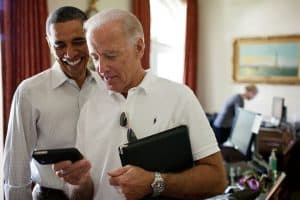Obama presses on in spite of public doubts
pharmafile | January 20, 2010 | News story | Sales and Marketing | Obama, US healthcare
President Obama is making slow but steady progress towards making his healthcare reforms a reality – but is also steadily losing approval among voters.
On 15 January the President secured a tentative deal with unions to revise a tax on high-cost insurance plans Unions and some Democrats feared the tax would said would hit middle class families and union members who gave up higher wages for better health benefits.
The concerns of the unions reflect misgivings about the reforms across the country.
Opinion polls show most of the public are now opposed to the healthcare overhaul, as many fearing they will be worse off than now.
The so-called ‘Cadillac tax’ is aimed at raising funds from better-off middle class Americans via their health insurance in order to fund costs elsewhere in the system.
Despite some being “obscured by fear and distraction” during the health care debate, Obama said the merits of the reforms will become apparent.
“The American people will suddenly learn that this bill does things they like and doesn’t do things that people have been trying to say it does. Their worst fears will prove groundless, and the American people’s hope for a fair shake from their insurance companies for quality, affordable health care they need will finally be realised.”
The ‘Cadillac tax’ is part of the Senate’s version of the healthcare bill.
This must be reconciled with the House of Representatives rival bill and then passed by both chambers before Obama can finally sign it into law.
Despite the complexity of the bill and competing views on its best direction, Democrats report progress.
The aim is to extend insurance coverage to more than 30 million Americans who are currently uninsured, and to create a system allowing individuals to shop around for insurance plans and bar insurance practices like refusing coverage to people with pre-existing medical conditions.
If they agree to a deal on the Cadillac tax, negotiators will still need to find ways to raise more revenue. They have been considering raising the payroll tax on Medicare, the health insurance system for the elderly, and extending it to income from investments by the wealthiest Americans.
Some House members said they also were interested in seeing the pharmaceutical industry contribute a greater amount to the budget. The industry secured a favourable deal, worth $80 billion, with the White House last year, but numerous stakeholders have suggested pharma should be made to contribute more.
“I have not heard a figure, but I know $80 billion was too low,” House Rules Committee Chairwoman Louise Slaughter told Reuters.
Democrats are trying to move quickly to merge the two bills and get the final version approved before Obama’s State of the Union speech in early February.
Related Content

FDA sharpen focus on pharmaceutical companies under Trump
The overall number of warning letters being sent out by the FDA has dropped under …

New formulary ‘bank’ to aid research into combination therapies
As part of the wider ‘cancer moonshot’ initiative, confirmed by the signing of the 21st …

Obama seals $6.3 billion 21st Century Cures Act
President Barack Obama put pen to paper on the 21st Century Cures Act on 13 …








